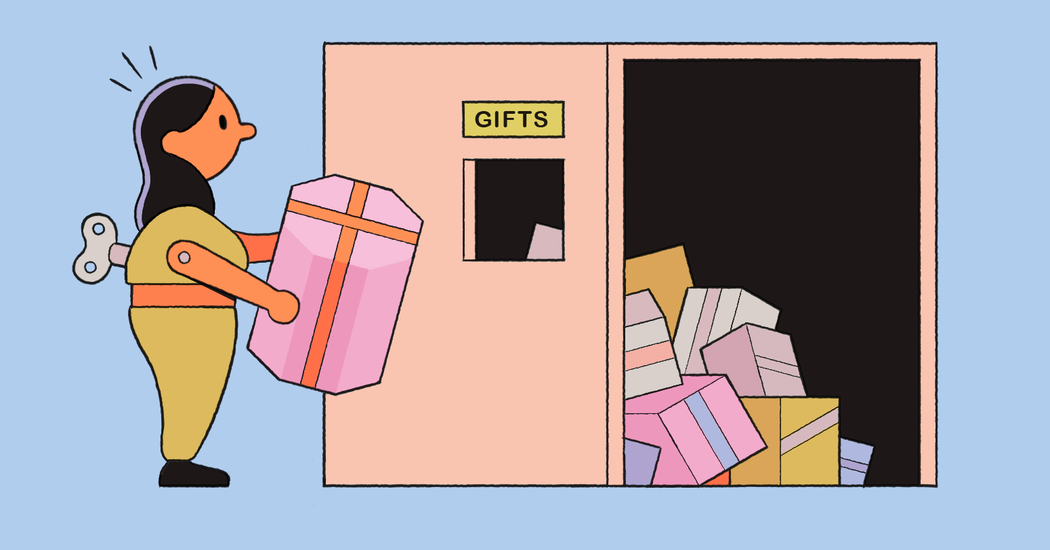
Pick up not only on people’s joys and delights but also on their burdens and aggravations, and think of gifts that might alleviate those things. If they complain about never having enough free time, steer clear of time-consuming gifts like jigsaw puzzles or 1,000-page books. Instead, think about time savers, such as a robot vacuum or hiring someone to fix things around the house that the recipient hasn’t been able to attend to.
Sentimental gifts are by far the most meaningful. Just ask the 53-year-old woman who was moved to tears by a purple bicycle with a big bow on it, given to her by her fiancé, who understood that childhood poverty had deprived her of such playful pleasures.
Giving a gift, especially one you want to make a statement, can be a vulnerable experience. “That’s why some people get so stressed out giving gifts, because it feels too exposing to express their emotions and like they won’t do it right,” Dr. Buchele said. People can also have a hard time accepting gifts, particularly if they have an avoidant attachment style or fear intimacy. They might subconsciously resent being known in that way, or feel unworthy or even envious because they are not as thoughtful.
How receivers react depends on how secure they feel in themselves and their relationship with the giver, said Dr. David Goldberg, a psychoanalyst in Birmingham, Ala., who, like Dr. Buchele, encounters a lot of gift-related anxiety this time of year. He added: “A thoughtful and generous gift can stir up all kinds of conscious and unconscious fears, longings and desires. What does it mean to accept it? Do I now owe the person something? What does it mean for me going forward? Do I need to respond in kind? If I respond in kind, does it mean going to the next level?” No wonder some gift givers tend to err on the side of caution and just buy something generic like a scented candle or a gift card, rather than run the risk of going personal and getting it wrong.
If you’re stumped on what to get for somebody, you can always ask. One couple uses a shared Google doc to keep track of the things they want to receive from one another; the wife therefore knew her husband would not be disappointed when she picked the fancy espresso machine he had on the list. This does raise the question of whether complying with a request is more an act of service than a gift. “I would suggest that anyone who says surprise is not needed in gift-giving perhaps has a different love language,” said Dr. LeeAnn Renninger, a social psychologist and a co-author of the book “Surprise: Embrace the Unpredictable and Engineer the Unexpected.” If being surprised is important to the person you’re giving to, try asking for more general guidance, rather than specific suggestions.
Maybe the best strategy when it comes to gift-giving is to conduct your own not-so-scientific survey. Ask family and friends to tell you about the best and worst gifts they ever received. Not only will you learn what kinds of gifts truly touched or perhaps profoundly hurt them; if you really listen, you will also develop a better understanding of their core values, love languages and attachment styles. These conversations can help deepen your relationships, which is a gift in itself.






